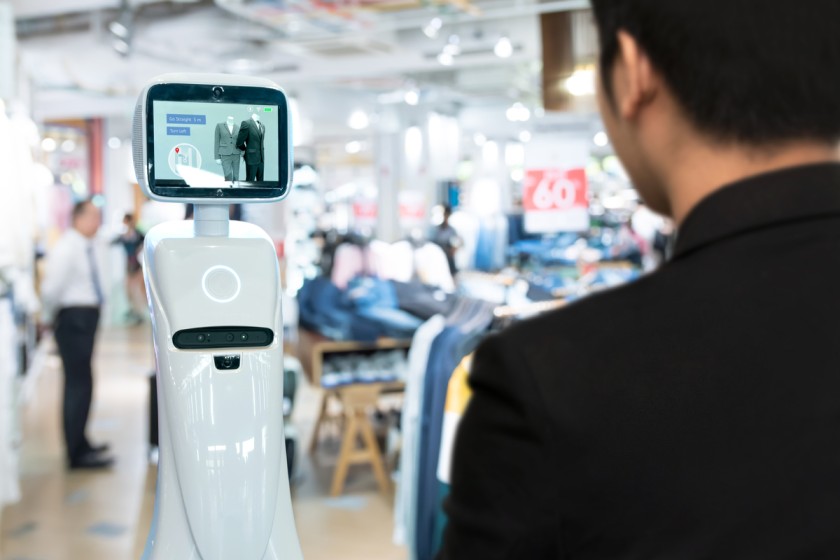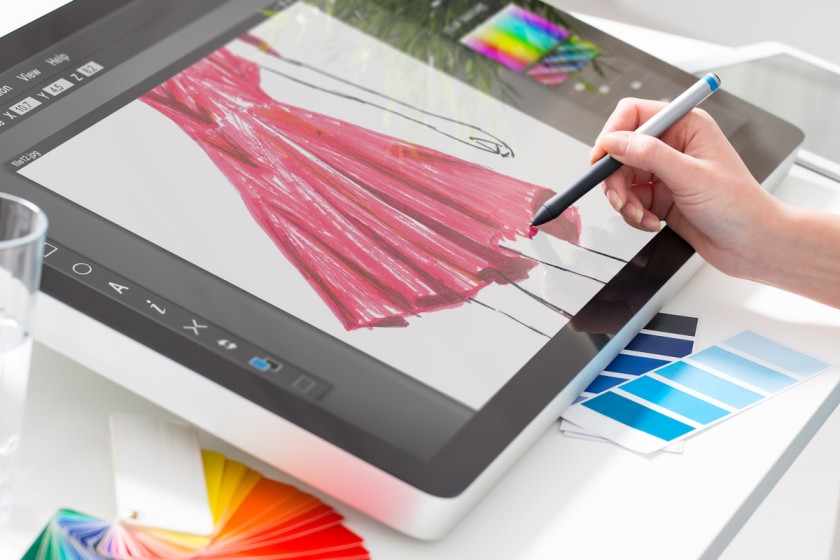A Case Study Of How The Fashion Business Will Evolve Technologically, Resulting In A Market Worth Over $200 Billion.



How the fashion industry has evolved over the years by technological advancement is riveting. Fashion technology has helped the sector broaden the possibilities of creating a compelling future of novel trends. Fashion has always been more than a fad that keeps unfurling itself into discoveries every now and then.
The vintage or age-old ideologies on fashion are still pristine in this generation. One has to consider all the unique possibilities to create a better fashionable trend in this era. Technology has not just refined fashion; it has redefined it to amaze everyone by the differences it could create between the past and present trends. The demand for fashion has increased globally. Despite the turbulence in the annual growth rate, the fashion industry will reach $68.6 billion by 2020.
Fashion Evolution from Humanity to Technology
The term "fashion" was an understatement in the olden days. People required clothing only to cover themselves, and materials like silk, cotton, linen, wool, and leather met the purpose. Various generations inherited the craft of producing the materials, and they spent a lot of time discovering new elements.
New designs and patterns were introduced. From being a requirement to coping with the current trends in clothing, fashion evolved. It was all man-made and handcrafted. With so many technical advancements, people started improvising new methodologies. The urge to live by fashion trends has become prevalent in recent decades. Before technology could take over the fashion industry, the craftsmanship of the artisans became impeccably distinguished.

The recent decade brought in fashion technology, and the advancements took it to the next stage. The changes in the lifestyle and current trends vary a lot from those that existed in the past. The evolution took place at a slower pace until technology could entirely take over the fashion industry.
After fashion technology took over the industry, its growth expanded globally to bring in a huge turnover. The works of the ancient people required more effort and time while technology could do the same in comparably less time.
Fashion Technology – The Novel Fashion Expertise
It is no wonder that technology changes the way one approaches things. It is very similar in the fashion industry how people look towards fashion using technology and developing new tastes. With augmented reality, people experience fashion entirely differently. This has benefitted both the brand owners and the consumers. Shopping has become much easier as the shoppers are allowed to try things virtually and then make decisions.
Technological assistance in decision-making has helped the shoppers a lot and is also time-saving. The brands provide specific criteria that need to be checked to customize the shopper's preferences. Augmented reality allows a person to select clothes as per their body type, skin tone, etc., and gives a trial of the product. This reduces the time involved in trying out garments at a retail store. Augmented reality has benefitted the clothing industry and covered the entire range of fashion. Everything has been included in this new era of fashion technology, from watches to glasses, footwear to accessories.
The comfort and connectivity provided by a brand are significant to any consumer. The brand value is retained by a comfortable consumer experience when they face a problem. The retailer's website keeps track of the wants of their customer by letting them enable cookies for their website while shopping.
The fashion industry channels itself into different mainstreams to classify the products. The apparel chain, which is considered the biggest chain in the fashion industry, has a separate target audience. They account for 33.9% of the turnover in the fashion industry. These numerals are based on the Compound Annual Growth Rate Index (CAGR).
Because of fashion technology, the relationship between the consumers and the producers has also evolved positively. The producers seek the perfect opportunity to provide ad flashes and pop-ups to grab the customer's attention. It becomes simpler for the brand owners to attract customers with discounts and offers or direct them to the store with redeemable coupons.
One can get familiar with a brand only when they come across the brand frequently. Technology has made promoting easier by minimizing the costs and maximizing the reach.
Technology redefining the fashion industry

Fashion technology has made it easier for both manufacturers and retailers to produce and market their products. The producers of fabrics have found it more accessible and cost-effective to involve technology in seamless manufacturing. The use of labor for every minute detailing would lengthen the production process, and the involvement of technology would save many human-hours. A considerable number of brands rely only on technology to cater to their needs.
Technological advancements have evolved so that the weavers of traditional clothing have a leap in their jobs. The finished products are marketed so that the products have a broader reach. Certain brands expand their businesses globally with the use of fashion technology.
It is expected that five years down the line, the fashion industry could reach a turnover of $163.4 billion. The pace at which the technological advancements are implemented is very efficient. This could result in a 19% increase in this turnover, which would exceed $200 billion by the end of this decade.
One cannot easily enlarge their customer base without using technology in today’s time and age. Social platforms play an essential role in providing a great reach of even smaller brands across the globe. Social media is a robust platform that quickly plays the role of marketing personnel.
Top brands like H&M, Gucci, Zara, GAP, Levi’s, etc., contributed the most to the annual turnover. These brands are spread globally and have a reliable customer base. With technology taking over the industry, the turnover trend has been moving upwards. One can always rely upon technology to address the launch of new arrivals or their business expansion. Top brands could incur a massive loss if the technological element is removed from the fashion industry. A slight technical glitch could affect mainstream brands that produce higher-value commodities. These technologies should be maintained periodically to ensure proper functioning and obtain accurate results.
Conclusion
Technology is now everywhere, especially digital tech. If the world had not gone digital, the brand owners and shoppers would have faced difficulties in marketing and shopping. A few years down the line, the market opportunities would broaden to a point where the fashion industry exceeds 200 billion dollars. Fashion technology will only grow bigger in the years to come. For any fashion-related solution like sourcing the right material, you can visit Fashinza today!



















